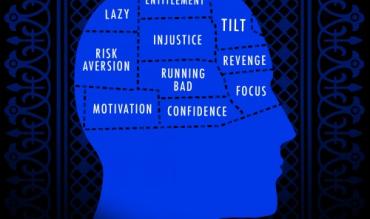The Right Energy for Poker
I’ve said the phrase “the right amount of energy” several times already and it’s about time I tell you what that actually means. For the answer we can turn to science, since this is a well-researched concept. The graphic below is called the Yerkes-Dodson Law, and it shows the relationship between energy and performance. Starting from the bottom left where your energy level is low, you’ll see that your performance is also low. Think about times when you were tired, unmotivated or bored—you didn’t play very well. That’s because you were lacking the energy needed to fuel your mind. On the flip side, the bottom right, your performance is equally poor because your energy level is so intense that it causes the mind to malfunction. Like an electrical circuit that overheats and shuts down, the mind can’t function properly when you’re overexcited, tilted, or fearful. At the top of the curve is that ideal balance, call it the Goldilocks of energy— not too much and not too little.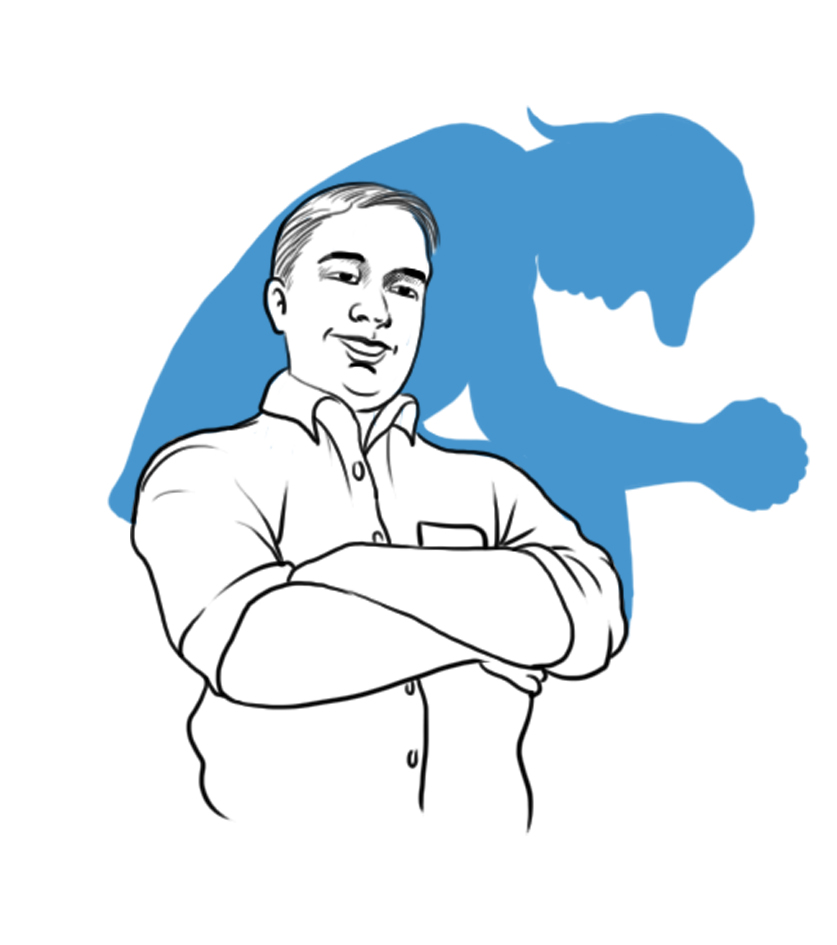
Admittedly, the graphic isn’t perfect because it implies that having the right amount of energy guarantees you’ll be in the zone. I’ve realized more recently that is not the case. As I mentioned in the introduction, focus, data gathering and your decision-making process also play a distinct part in determining your level of performance.
Find Your Ideal Energy
 You’ve been there before. You’re not too excited or aggressive, nor tired or disinterested. You’re rested. Recharged and ready to get to the tables to play some poker. Poker like this is a lot of fun. The nuances of poker pique your interest and the challenge is inspiring.
You’ve been there before. You’re not too excited or aggressive, nor tired or disinterested. You’re rested. Recharged and ready to get to the tables to play some poker. Poker like this is a lot of fun. The nuances of poker pique your interest and the challenge is inspiring.
To find this ideal level of energy again and again you first need to know what it’s like and the factors that produced it. How else can you know what you’re aiming to repeat? So think about it for yourself. What is your energy like when at your absolute best? Are you relaxed, calm, intense, hyper, or somewhere in between? Clients sometimes say they “just feel ready,” like they are energized and ready to go. Now think about the factors that give you this great energy, like sleep, diet, exercise, motivation, recent volume, average buy-in, preparation, and emotional state. How did you sleep the night before, or recently? Did what you ate that day, or the night before make a difference? Did you exercise before you played, and does it matter how long and what type of exercise? Does it matter what stakes you play or the difficulty of the lineup? How do your emotions impacted your energy?
Remember, just because your energy is ideal doesn’t mean you’re playing your best. You could be easily distracted and watching a movie alongside your tables. You might have just watched some training videos and you’re trying to apply new concepts that you don’t know well enough yet. Ideal energy is different from ideal play, so when you’re looking for examples and descriptions of your best don’t discount times when your energy was great but your play wasn’t.
To consistently get to your peak energy level, I suggest creating a document where you keep notes about these factors and look for trends over time. This is no different than studying your poker game and looking for spots where you’re making money or losing it. As you gain more data about your ideal energy and the factors that produce it, you can build a strategy or routine to make it happen more and more. It’s not that complex but many players lack the discipline to follow through, and that’s a big reason why you should. Lastly, many of my clients are able to reach their peak level of energy more often after they correct the reasons their energy level gets too high or too low.
Reduce Your Energy
If your energy level has become too intense for you to play well, you’re now sliding down the right side of that curve headed for a total brain malfunction. The odds are good that some emotion, for example, excitement, fear, anger, inspiration, or overconfidence, has caused you to go over the edge.
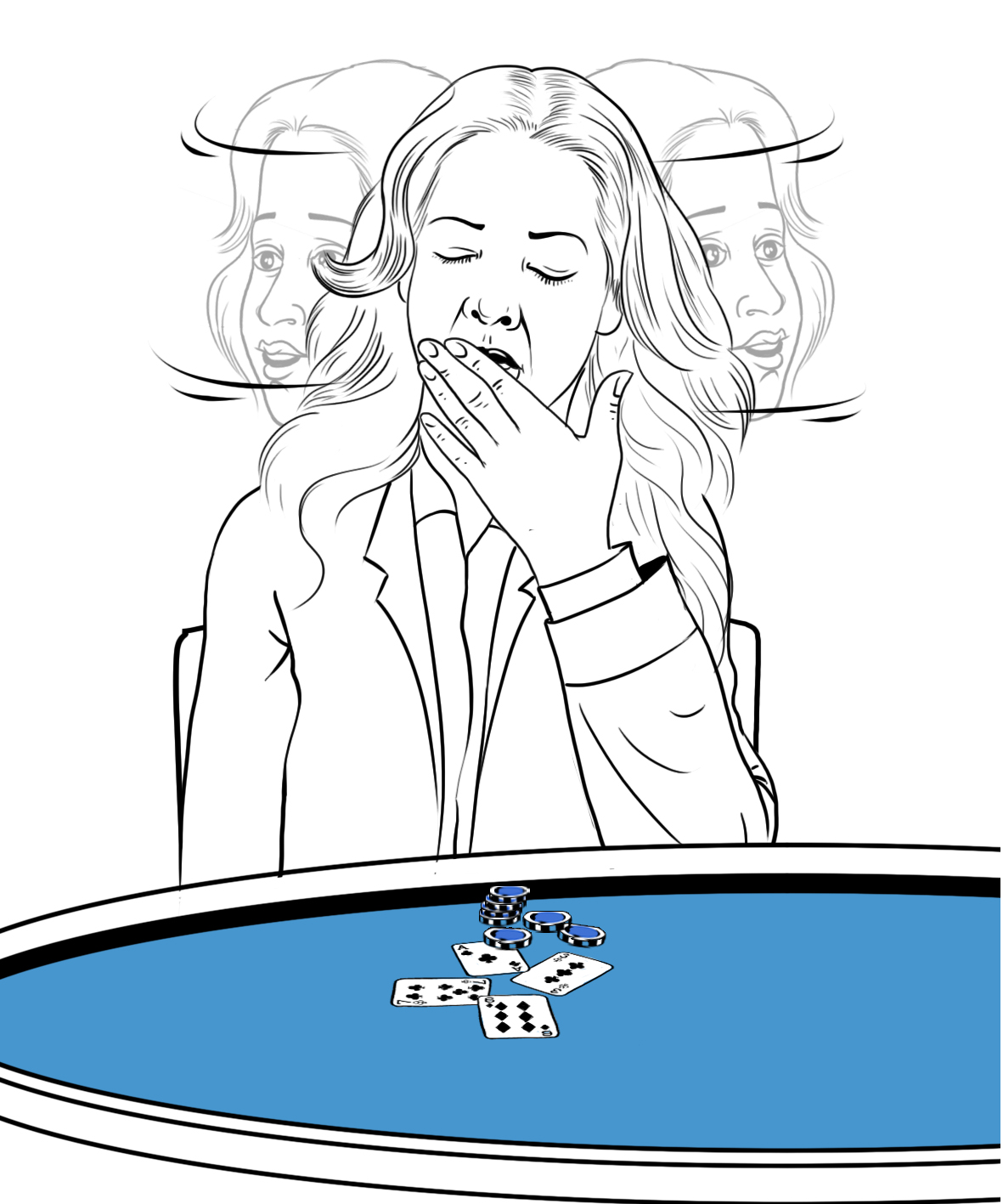
Understanding how to dial back the intensity is a skill and was the main subject of my first book. Here are some cliff notes on how to build emotional control:
1. Understand what causes your emotions to become too intense. Is it anger from bad beats, fear from an intimidating opponent, or overconfidence from a winning streak? If you’re going to gain control of your emotions, you first need to understand what’s driving them.
2. Before you play next, come up with a correction to the emotional reaction that you can say to yourself while you’re playing. Very often the things we say to ourselves only make the emotion worse. For example, if you get frustrated when you make a mistake, instead of saying, “What an idiot!?! How could I have been so stupid,” try saying, “I don’t make mistakes like that unless something is off – am I tilted, tired, distracted? That’s the real mistake I need to fix.” Or if you get anxious playing against a strong player, instead of saying “He can read my soul. I have no chance,” try saying, “This is going to be tough, but if I play my best I’ll learn something and get some practice playing against players like this. You never know, he could underestimate me and I can find some spots to outplay him.” The best corrections are ones that get at the root of the emotion and are in your own words. If you’re having trouble coming up with a correction, in an upcoming chapter “An Important Update to The Mental Game of Poker” I describe a step-by-step process that can help you come up with one.
3. While you’re playing, spot the signs that your emotions are increasing and repeat that correction in your mind. You may need to do it several times to decrease the emotion. You may also need to keep repeating it to yourself through the session or tournament. Once emotions have overwhelmed your mind, it’s often easier for them to keep coming back like a fly that won’t leave you alone. Keep fighting, this is how you maintain control, have better energy and become mentally tough.
4. Consider taking a short break to cool off. Not an ideal solution since it means you’ll miss hands, but in the short-term, while you become mentally tougher, it may be necessary to avoid a big blow-up.
Boost Your Energy
Even when your energy is too low to be ideal, there are ways to push it higher. No matter why your energy is low—bored, tired, or a nutritional crash—you can use a strategy to help boost your emotions up the left side of the curve.
Heres how:
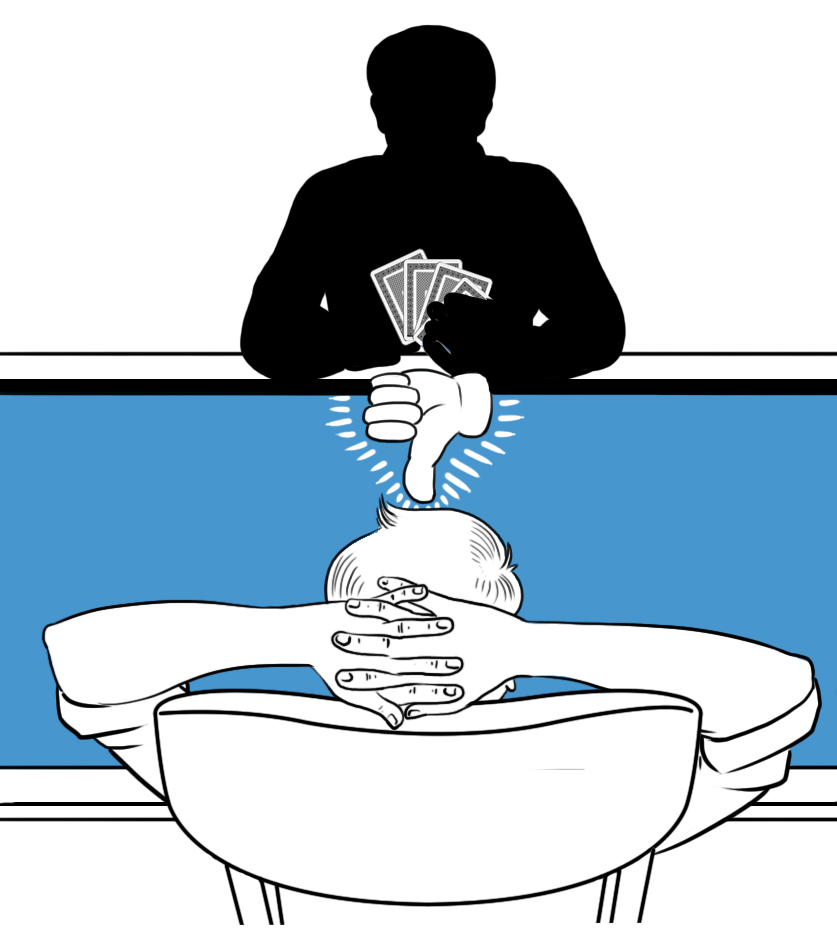
1. Understand what’s causing your energy to drop too low. Are you bored from being card dead the last hour, tired from having played for several hours without a break, or are you in a food coma from the huge plate of pasta you ate? While these reasons can all be helped by the strategy in the next step, recognizing why your energy is low will give you an indication of how long you’ll be able to boost your energy before needing to take a break or quit.
2. Before you play next, write down your goals and why they matter to you. They can be short-term goals for the session or tournament, or long-term goals for the next year or beyond. Let’s say your goal for the session is to play tilt free, the reason that matters to you (beyond the obvious cost) is that you’re tired of losing control and want to prove that you can keep your head together. Let’s say your bigger long-term goal is to win a WSOP bracelet. Write down why a bracelet matters to you. Is it the money? The prestige? To be considered a top player? Or to prove to your family that poker is a serious game? Whatever your goal there is always a deeper reason why you want it and you can use that to boost your energy.
3. While you’re playing, spot the early signs that your energy is dropping and in your mind, repeat your goal and the why behind it. The next time you start to get tired and consider quitting, this could make the difference between leaving the tables and pushing through to finish off a great session. Do that often enough and it can make a huge difference in accomplishing your goal. Just as with excessive emotion, you may need to repeat your goal and its importance to you throughout the rest of the session or tournament.
4. Boost your energy when it drops. Being aware that your energy level has dropped or is low can further zap your energy. That’s right, knowing you’re tired can make you more tired. It’s an excuse. Sometimes a subtle one that you’re not even aware has slipped into your mind. Recognizing that you’re giving up can reenergize you to fight for your goals and earn them—no one can make you tilt free or hand you a WSOP bracelet—you’ve got to earn it. Don’t let a little fatigue stand in your way.
Consistently producing ideal levels of energy is something that players have been focused on more and more. There’s a growing understanding in the community for the role that diet and exercise plays, and while they can certainly help, don’t make the mistake of ignoring how your emotions, goals and focus impacts your energy level.
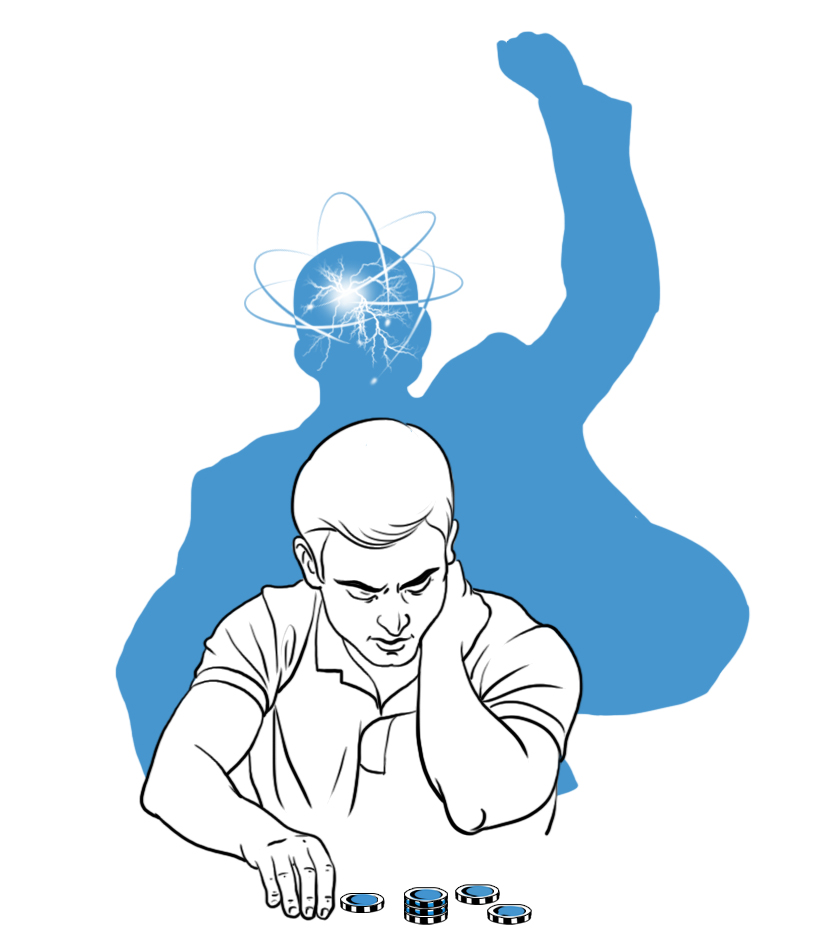 |
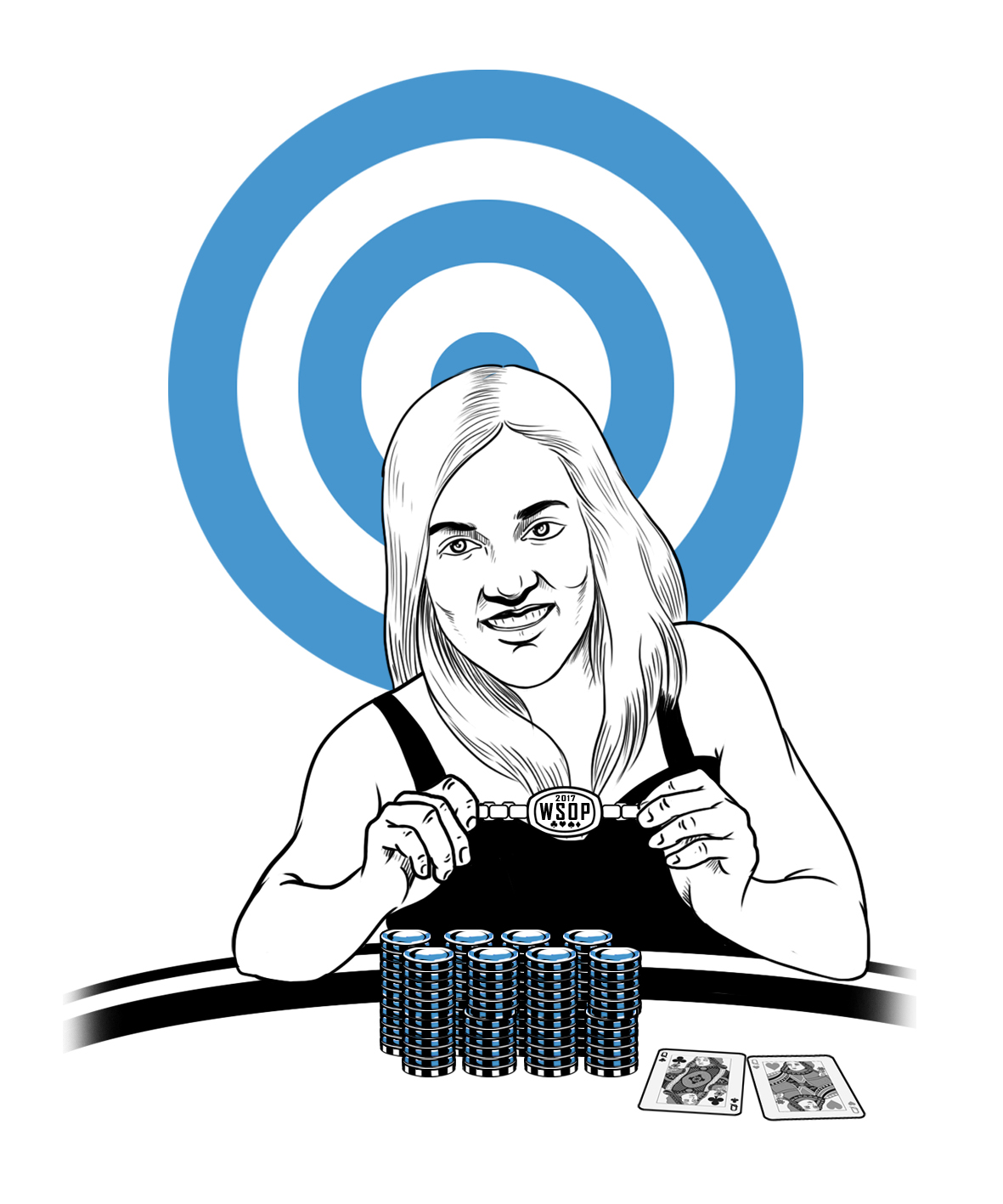 |
